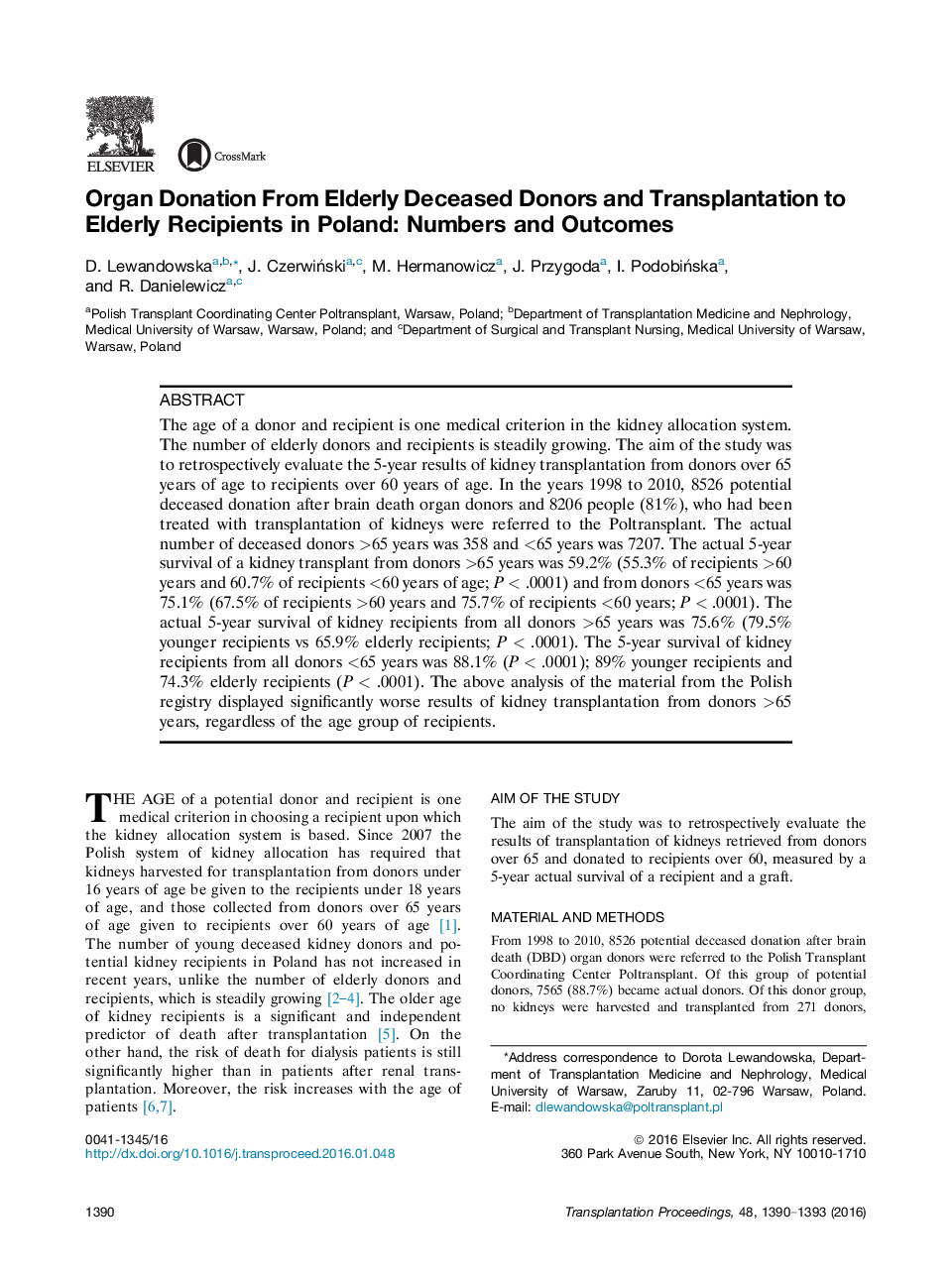| Article ID | Journal | Published Year | Pages | File Type |
|---|---|---|---|---|
| 4256038 | Transplantation Proceedings | 2016 | 4 Pages |
•The above analysis of the material from the Polish registry displayed significantly worse results of kidney transplantation from donors >65 years, regardless of the age group of recipients.•The difference in results is even bigger when the age of the recipient exceeded 60 years.
The age of a donor and recipient is one medical criterion in the kidney allocation system. The number of elderly donors and recipients is steadily growing. The aim of the study was to retrospectively evaluate the 5-year results of kidney transplantation from donors over 65 years of age to recipients over 60 years of age. In the years 1998 to 2010, 8526 potential deceased donation after brain death organ donors and 8206 people (81%), who had been treated with transplantation of kidneys were referred to the Poltransplant. The actual number of deceased donors >65 years was 358 and <65 years was 7207. The actual 5-year survival of a kidney transplant from donors >65 years was 59.2% (55.3% of recipients >60 years and 60.7% of recipients <60 years of age; P < .0001) and from donors <65 years was 75.1% (67.5% of recipients >60 years and 75.7% of recipients <60 years; P < .0001). The actual 5-year survival of kidney recipients from all donors >65 years was 75.6% (79.5% younger recipients vs 65.9% elderly recipients; P < .0001). The 5-year survival of kidney recipients from all donors <65 years was 88.1% (P < .0001); 89% younger recipients and 74.3% elderly recipients (P < .0001). The above analysis of the material from the Polish registry displayed significantly worse results of kidney transplantation from donors >65 years, regardless of the age group of recipients.
